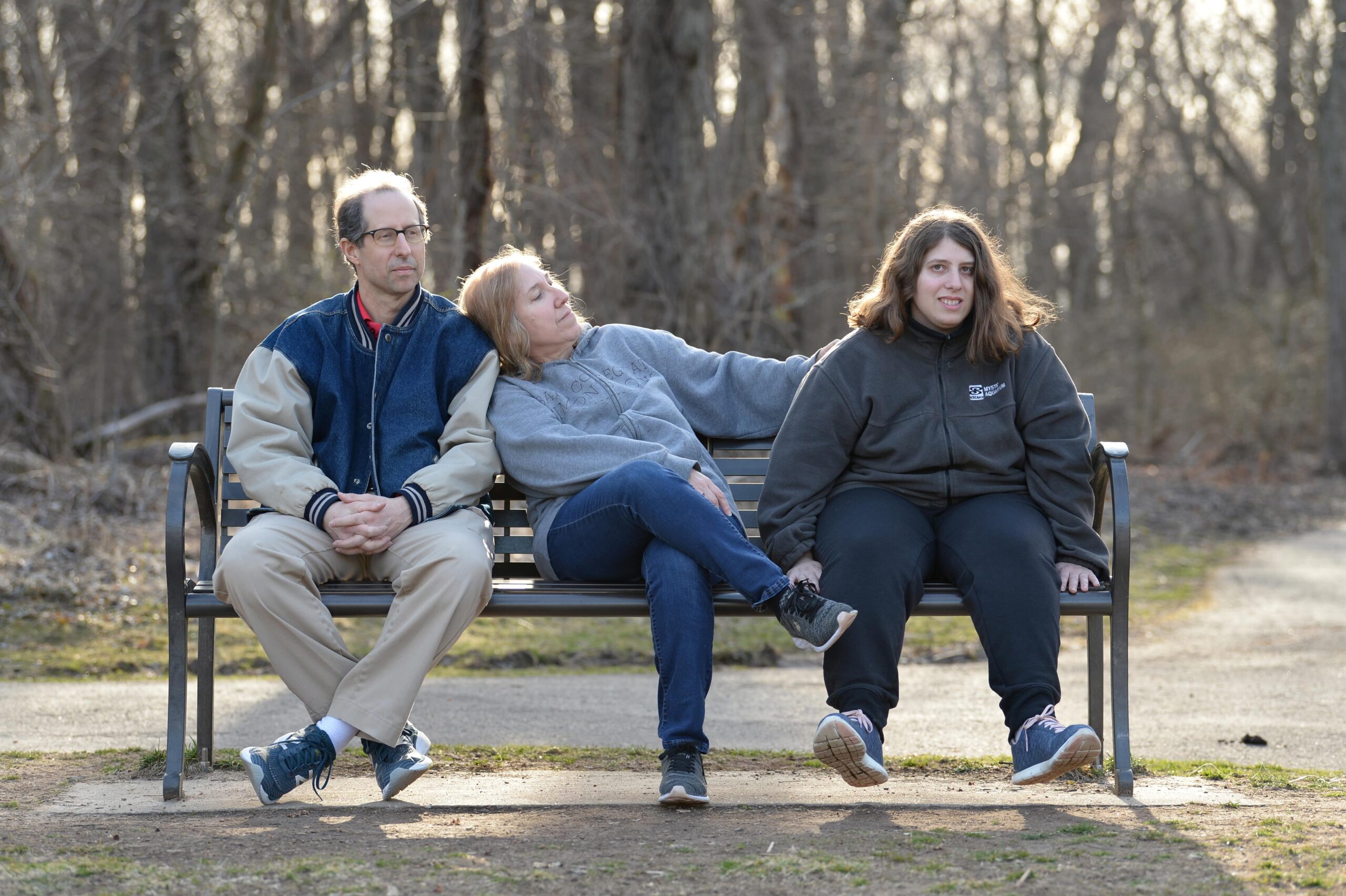LISTEN TO THIS ARTICLE:
Approximately 6.5 million people in the United States live with an intellectual disability. Although it is the most common developmental disability, resources for this population are very limited. Finding long-term care for adults with intellectual disabilities is a growing challenge. This is becoming increasingly problematic as caregivers age and are no longer able to shoulder the enormous responsibility of providing for an individual with a developmental disability.
Being a caregiver to an adult with disabilities is an around-the-clock job. Jill Escher, the president of the National Council on Severe Autism, notes that caregivers serve as “the housing provider, the 24/7 supervisor, the program manager, guardian, trustee, financial manager, benefits manager, advocate, cook, driver, hygienist, housekeeper, launderer, medical supervisor, recreation provider, interpreter, iPad fixer, handyman, protector from abuse and neglect, and of course, the main source of love and nurturing.” These are jobs that are critical for meeting the basic needs of an adult with a disability; yet, the work does not stop there.

Adults with Intellectual Disabilities and Mental Health
An often overlooked part of providing long term care includes ensuring good quality of life for adults with intellectual disabilities. Caregivers have to navigate the probability of their adult child being unable to have a romantic relationship, live independently, or find paid employment. After high school, adults with disabilities watch their friends go to college, get jobs, have weddings, and buy houses. Without these opportunities, they struggle to feel belonging, acceptance, and purpose. Adults with intellectual disabilities are at a higher risk of developing coexisting psychiatric conditions, such as depression and anxiety, than the general population. It is up to the caregiver to help them create meaning in their everyday lives to decrease the negative mental health effects that will likely occur.
Individuals with intellectual disabilities are also at a higher risk of developing behavioral conditions, such as oppositional de fiant disorder (ODD). This condition is characterized by irritability, aggression, and argumentative behavior, which may occur at any time in public settings without being able to identify any specific triggers. While distressing for a person with an intellectual disability, co-occurring behavioral conditions also add significant stress to a caregiver’s life. These impulses may limit the activities that an adult with disabilities can participate in. It also means a routine trip to the grocery store requires thoughtful planning and proactive management to prevent escalations.
Adults with ODD may become physically violent toward their caregiver or others, which can have serious consequences. In addition to meeting basic daily needs and providing quality of life, the ultimate job of a caregiver is to keep an adult with disabilities safe from a world that may not understand what it means to live with a disability.
Caregiver Mental Health and Burnout
Providing long term care and managing the physical and emotional needs of an adult with disabilities can negatively impact a caregiver’s mental health. Several research studies suggest that caregivers face higher rates of mental health conditions, like depression and anxiety, than non-caregivers. They are at significant risk of experiencing caregiver burden, stress, compassion fatigue, and burnout. Moreover, it can be difficult for a caregiver to establish their own identity. They may have to give up on having a career or developing friendships outside of the home. This can lead to a lack of purpose beyond their caregiver responsibilities as well as financial insecurity. Those who do work can struggle with work-related conflicts due to their dual responsibilities.
The Benefits of Respite Care
Respite care is a service that provides alternative care for an adult with disabilities. It allows the caregiver to take a break from their responsibilities for a short period of time. Different types of respite care include in-home care, adult day services, and overnight care. Respite care has shown to greatly reduce caregiver stress and decrease burnout rates. It improves caregiver life satisfaction and mental health. Respite care can make it possible for caregivers to work outside of the home. This can help a caregiver both establish their own identity as well as alleviate financial pressure. Another documented benefit is that respite breaks can delay or eliminate the need for long-term residential care for those adults with intellectual disabilities.
A Care Crisis
Despite the numerous benefits of respite services, many state funded programs are lacking in both quality and quantity. A 2017 Department of Health and Human Services report noted that only 1 in 5 adults with disabilities will receive paid support from a state agency. Many are on waiting lists for several years in an attempt to get essential services provided by the state. Most of the time, adults with disabilities never get anything at all. Without respite programs and adequate funding, caregivers get overwhelmed.
Aging caregivers
As caregivers age, they become both physically and emotionally unable to maintain proper care of their dependents. Although some siblings or other family members will take on the responsibility of being full-time caregivers, others will choose not to. In these situations, aging caregivers do not know where to turn. In 1999, a landmark decision in Olmstead vs. L.C. found that the segregation of people with disabilities who could live in a community with support is unlawful under the Americans with Disabilities Act. Prior to this, many adults with disabilities were admitted to state psychiatric hospitals.
Now, if funds are available through government programs like Medicaid, families may be able to hire professional help to take over some of the daily responsibilities of being a caregiver. Yet, many families are frustrated with the lack of quality care. They cite under trained staff, high rates of burnout, and significant staff turnover as major obstacles they face. Understandably, some caregivers distrust these services and are left to manage on their own.
Long-term housing
Long-term residential services are also facing budget cuts and staffing shortages. In Pennsylvania, a third of disability service programs have closed since 2020 due to worker shortages, leaving many of the state’s 66,000 adults in need. More than 12,000 adults with disabilities in PA are still waiting to be approved for funding. The programs that remain open are struggling to retain skilled workers and provide quality care. In Texas, the numbers are even more dire. Approximately 200,000 adults with disabilities have been waiting over a decade for services such as residential care or behavioral support.
Nonprofit Organizations are Trying to Help
Many non-profit organizations are attempting to fill in the gap for the lack of government support programs. Programs like Friends in Action in New Hampshire and Citizens of Maine are doing wonderful work to provide meaningful opportunities, skill building, and social connection for adults with intellectual disabilities. Community-based day programs are available that offer outdoor excursions, movies, bowling, dance socials, cooking classes, and financial literacy courses. Moreover, they allow for caregivers a few hours of respite during the week. Citizens of Maine also offers shared living, group home, and in-home support options.
A Call to Action
Despite the many positive benefits of nonprofit organizations, more work needs to be done with government support. While an increase in state funding is needed, it is not enough. Solely putting dollars into a broken system does not fix it. Real conversations about what constitutes quality of life and effective long term care for adults with intellectual disabilities needs to occur. Providing adequate training for staff and finding solutions to reduce staff burnout and turnover is essential. Without this, caregivers will continue to struggle until they can no longer provide for their dependent. As Escher states, “Losing a caregiver means losing everything that is possible for an adult with disabilities.” An increase in high quality government funded services and long-term respite solutions are needed to improve the quality of life for adults with disabilities and reduce the negative effects on caregivers.

 Learn
Learn Read Stories
Read Stories Get News
Get News Find Help
Find Help
 Share
Share
 Share
Share
 Share
Share
 Share
Share



